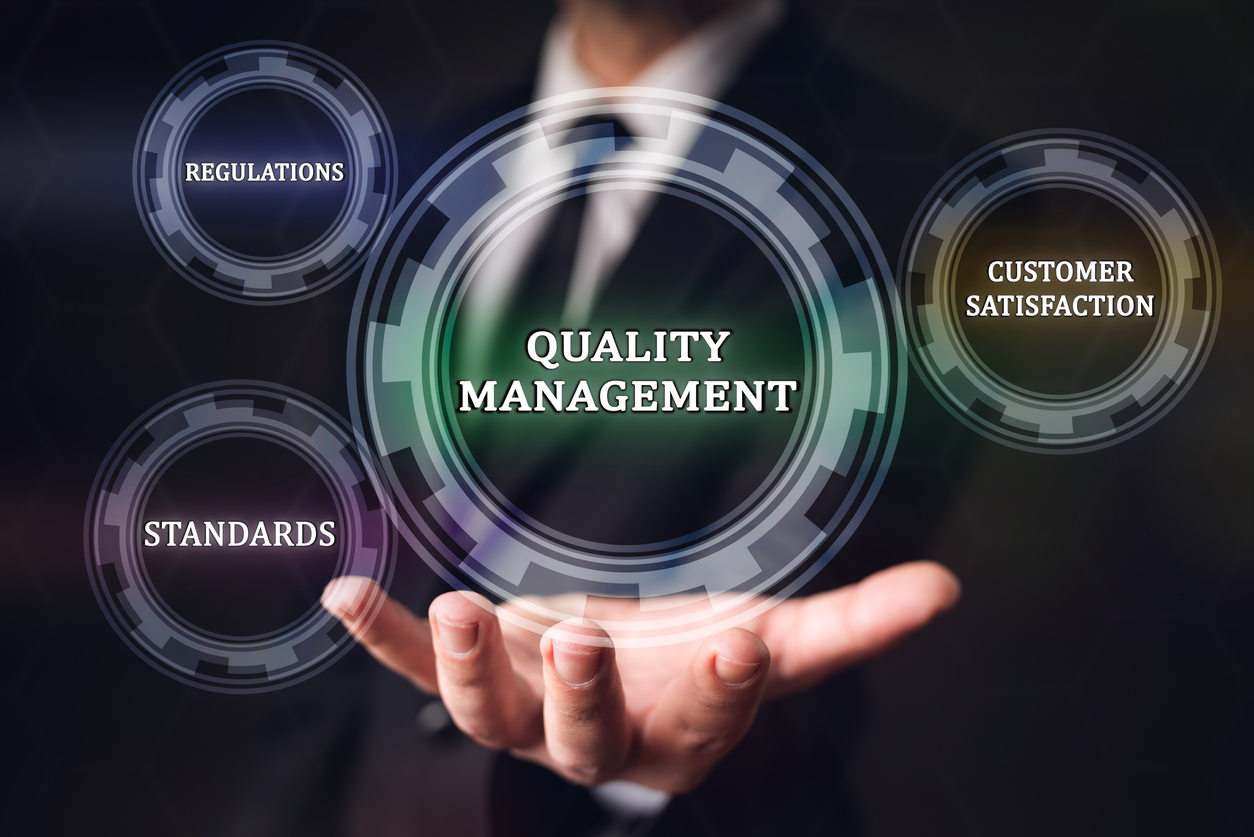
Systematically increase the trust of your customers
A quality management system (QMS) gives your customers the security and confidence that you will deliver what they expect. You also systematically improve process reliability and customer satisfaction. A quality management system can be set up and certified in accordance with ISO 9001 or other industry-specific standards (e.g. IATF 16949 in the automotive industry). It is important to adapt the QMS to the individual needs needs of the company and that the system is put into practice and delivers a positive cost-benefit ratio. A quality management system can be certified by an accredited certifier. Annual external audits must be carried out for this purpose.

Advantages of a certified quality management system
Advantages of a certified QMS
Our offer
We are happy to support you in setting up or optimizing your quality management system.
Our more than 20 years of experience with the introduction and auditing of quality management systems enables us to recognize your requirements and needs and to adapt the QMS precisely to these.
Introduction of a quality management system
The implementation of a quality management system incl. Ideally, certification takes about 6-12 months and essentially consists of the following steps:
Standards for quality management systems
Standards for QMS
The introduction and certification of a quality management system is carried out in accordance with the global standard ISO 9001. In addition, there are various industry-specific standards that are based on ISO 9001 and contain additional requirements. These include the following regulations in particular:
Questions?
We are happy to support you in setting up or optimizing your quality management system.
Our more than 20 years of experience with the introduction and auditing of quality management systems enables us to recognize your requirements and needs and to adapt the QMS precisely to these.
The ISO 9001 is an international standard that applies worldwide and can be used by any organization. It is currently available in the 2015 version. According to ISO 9001, organizations must essentially meet the following requirements:
Questions?
We are happy to support you in setting up or optimizing your quality management system.
Our more than 20 years of experience with the introduction and auditing of quality management systems enables us to recognize your requirements and needs and to adapt the QMS precisely to these.
